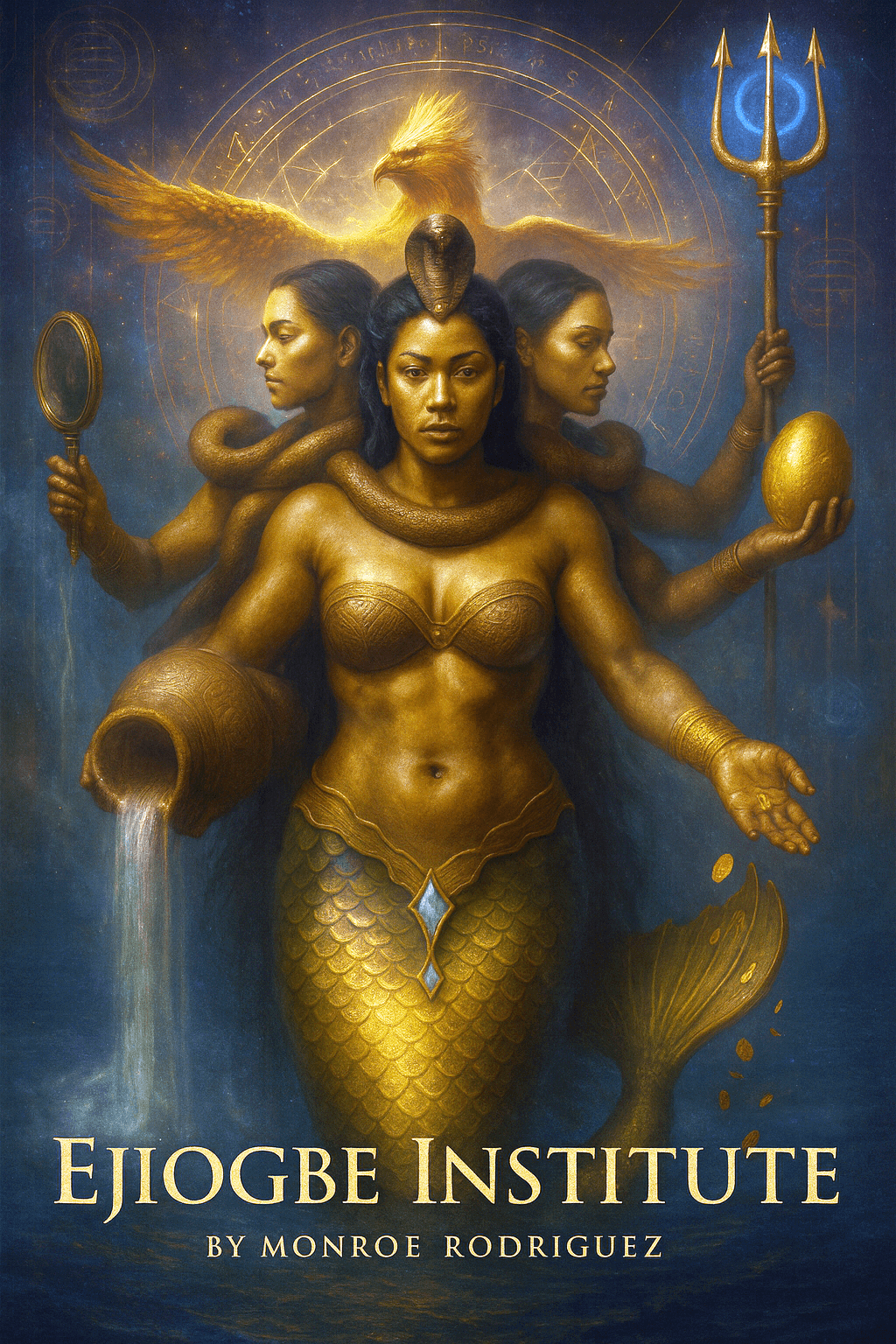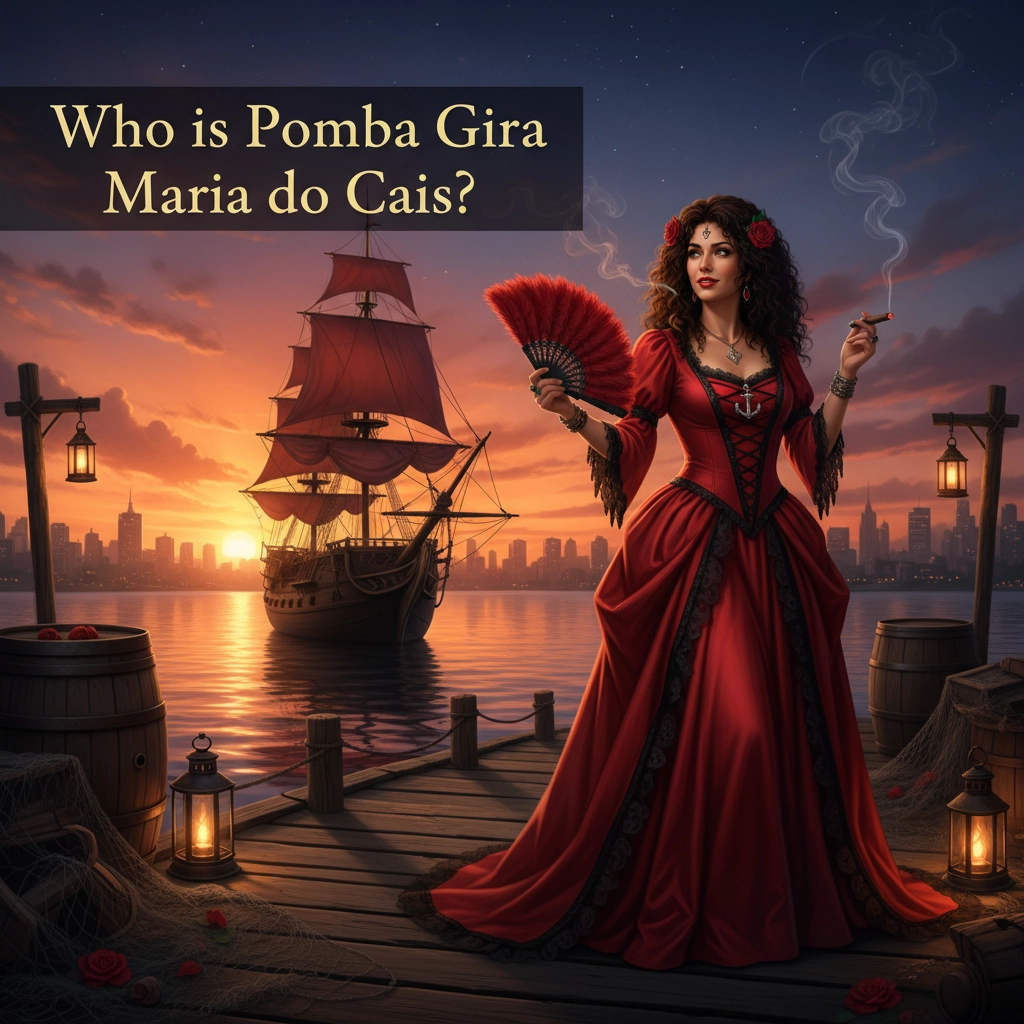Think you know what true spiritual power looks like? Most people picture serene temples and peaceful meditation. But what if I told you that one of the most revered spiritual entities in Afro-Brazilian traditions was born from trauma, forged in the gritty reality of dock life, and transformed through the ultimate act of sacrifice?
Meet Pomba Gira Maria do Cais, a spirit whose story will shatter every assumption you have about divine feminine power.
From Olga to Maria: A Journey Through Pain and Transformation

Her earthly story begins not in Brazil, but in Germany, where a girl named Olga was born into poverty. Before she could even understand the world around her, that world would betray her in the cruelest ways imaginable. At just seven years old, Olga suffered sexual abuse at the hands of her adoptive German family, a violation that would mark the beginning of a life defined by survival against impossible odds.
When she returned to live with her biological mother, the nightmare continued. Her stepfather became another predator, another source of trauma in a childhood already shattered beyond repair. But here's where Olga's story takes a turn that reveals the steel beneath her vulnerability: she refused to remain a victim.
She fled.
Picture this young woman, carrying nothing but her wounds and an unbreakable will to survive, making her way across continents to find sanctuary in the most unexpected place, the rough-and-tumble docks of Itajaí, Brazil. This wasn't a fairy tale escape to a better life. This was a leap into the unknown, trading one form of hardship for another.
The Docks: Where Maria Found Her Mission
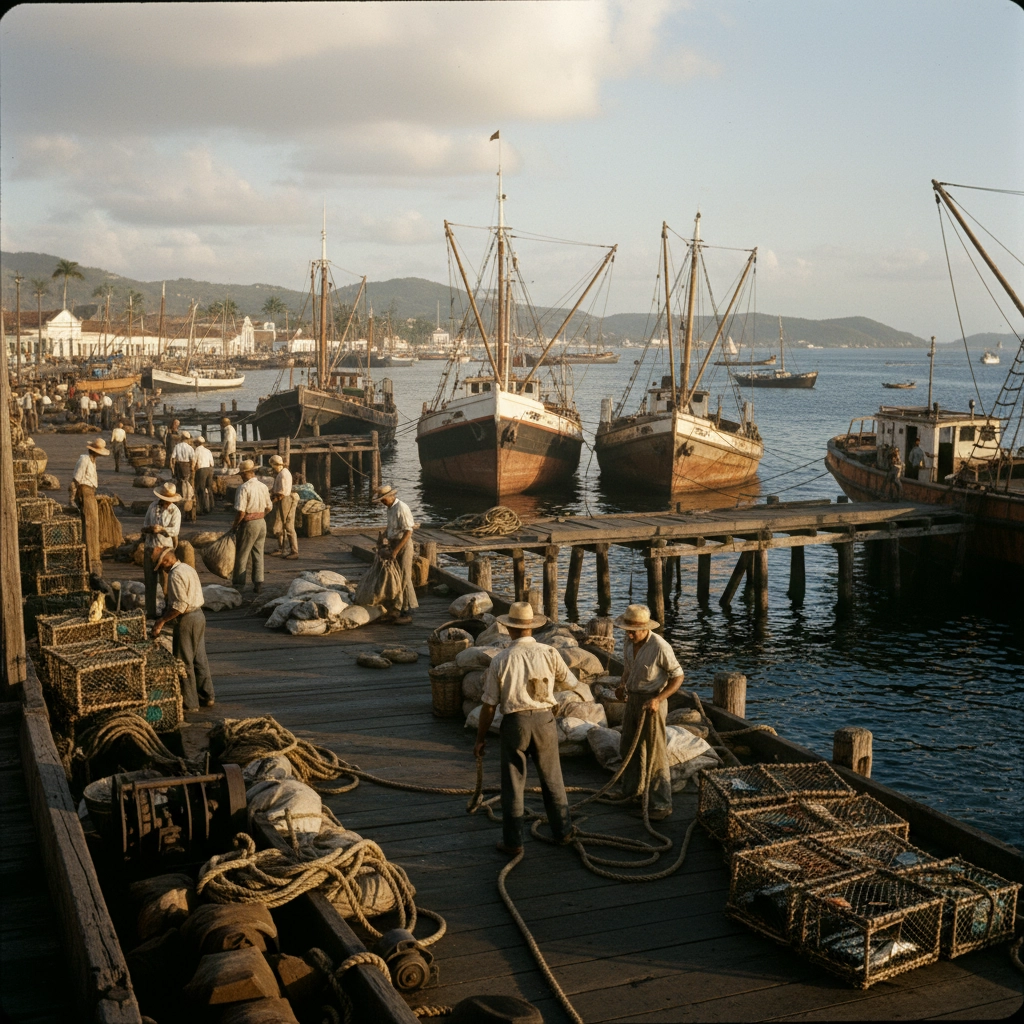
In the bustling port city of Itajaí, Olga became Maria do Cais, Maria of the Docks. The name itself tells a story of belonging, of finding identity in a place where society's outcasts gather. The cais became her kingdom, the fishermen and dock workers her community, their struggles her own.
But Maria wasn't just surviving in this harsh environment, she was thriving, becoming a beacon of hope for others who had nowhere else to turn. While others might have been broken by her experiences, Maria chose a different path. She chose to help.
This wasn't charity work or volunteer service. This was raw, street-level compassion born from intimate knowledge of suffering. Maria understood what it meant to be forgotten, abandoned, and abused. She knew the weight of desperation and the power of simple human kindness when everything else has failed.
The dock community embraced her not despite her past, but because of how she transformed it into purpose. She became the woman people turned to when they had nowhere else to go, the voice that spoke for those society had silenced.
The Ultimate Sacrifice: Death as Transformation
Here's where Maria's story takes a turn that elevates her from remarkable human to revered spirit. In the early 1960s, an Argentine ship docked in Itajaí experienced serious technical problems. While others fled to safety, Maria did what she had always done, she ran toward those who needed help.
The ship was in distress, with women trapped aboard. Maria could have saved herself. Instead, she chose to risk everything for strangers who meant nothing to the world but everything to her sense of purpose. She died attempting to rescue those women, her final act a perfect encapsulation of everything she had become.
But death wasn't the end of Maria's story, it was her transformation.
Recognition in the Spirit Realm: Maria Padilha's Blessing
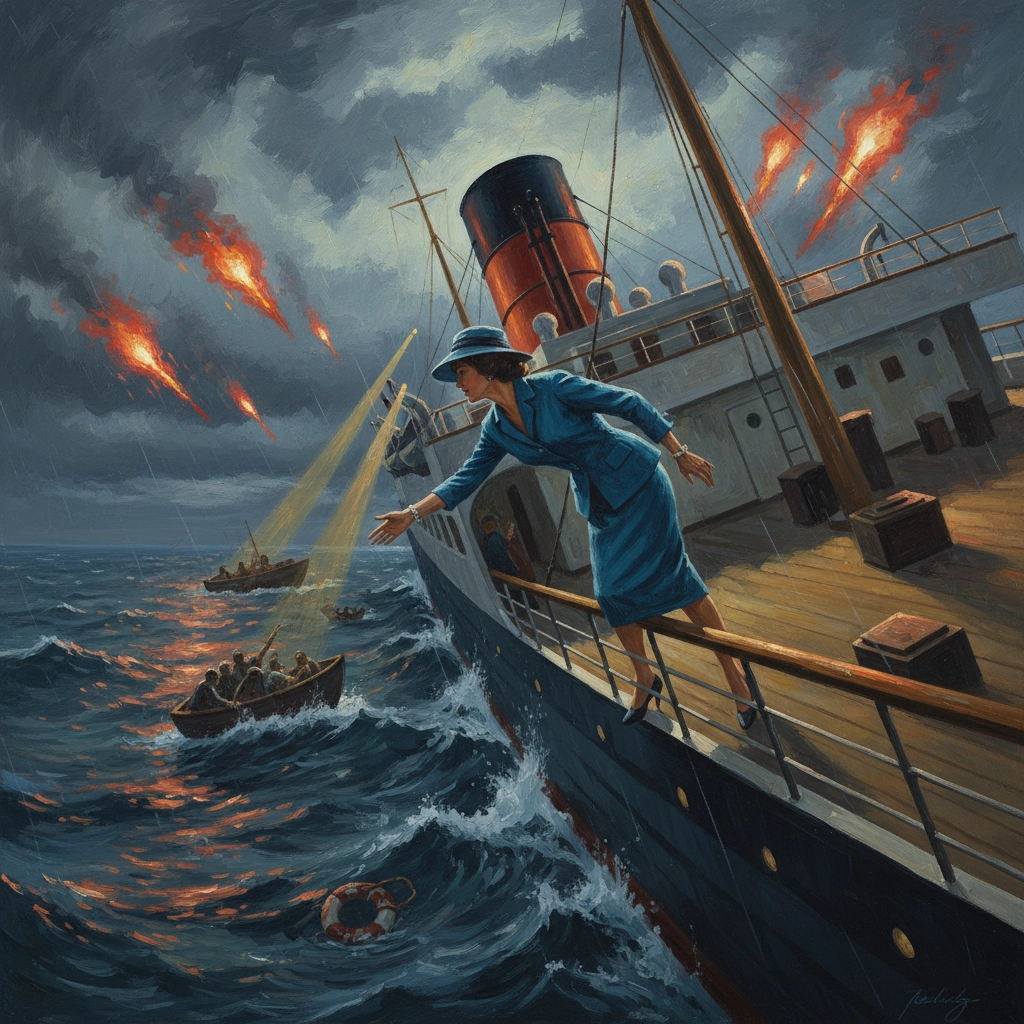
In Afro-Brazilian spiritual tradition, death doesn't always mean departure. Sometimes, it means elevation. When Maria passed into the spirit realm, she was recognized by Maria Padilha, one of the most powerful Pomba Gira entities in the pantheon.
Maria Padilha's message was clear: "Your mission is not complete."
Think about the profound spiritual recognition in that moment. Here was a woman who society had failed at every turn, yet whose spirit burned so bright with compassion and courage that the spiritual realm itself acknowledged her power. Maria Padilha didn't just welcome Maria do Cais, she commissioned her to continue her work from the other side.
This wasn't just about joining the ranks of spiritual entities. This was about being recognized for what Maria had always been: a protector, a warrior for the forgotten, a divine feminine force that operates not through gentle persuasion but through fierce, uncompromising love.
The Pomba Gira Tradition: Divine Feminine Power Redefined
To understand Maria do Cais, you need to grasp what makes Pomba Gira entities so revolutionary in spiritual terms. These aren't your typical divine feminine archetypes. Pomba Gira spirits embody female sexuality, power, and independence in ways that challenge every conventional religious narrative.
They're not passive, sweet, or submissive. They're complex, powerful, and unapologetically themselves. They work with matters of the heart, yes, but also with justice, protection, and transformation. They're associated with crossroads: those liminal spaces where decisions are made and destinies are forged.
Maria do Cais fits perfectly into this tradition while bringing her own unique energy. She carries the wisdom of someone who has survived the worst humanity can offer and chose to respond with compassion rather than bitterness.
How Maria do Cais Helps Her Devotees Today
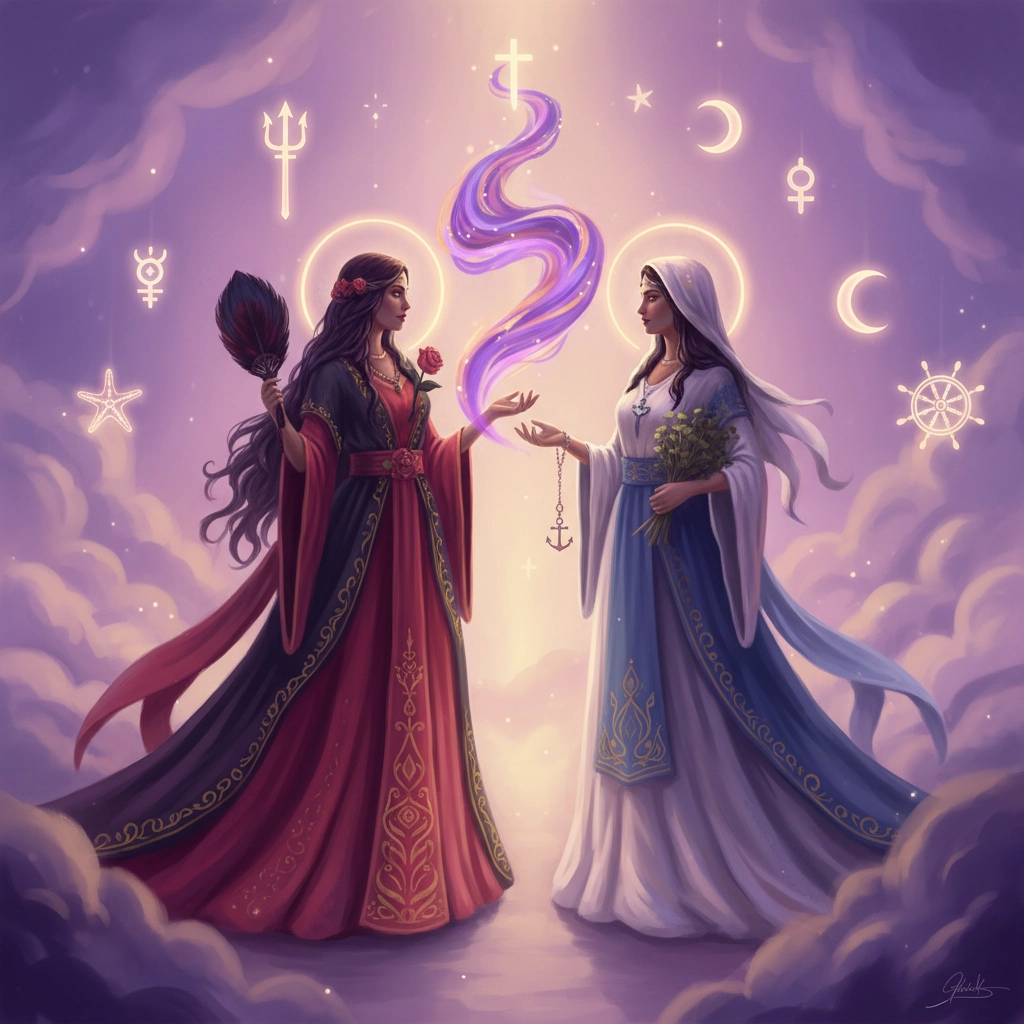
When devotees call upon Maria do Cais today, they're not just asking for spiritual intervention: they're connecting with a force that understands struggle from the inside out. She works particularly with:
Protection for the Vulnerable: Drawing from her own experience of abuse and her final act of heroism, Maria do Cais is especially powerful for those facing danger or exploitation. She doesn't just offer comfort: she offers the strength to fight back.
Justice and Advocacy: Her work in the spiritual realm mirrors her earthly mission of helping society's forgotten. She champions causes for those who have no other voice, working to right wrongs and bring justice to situations where conventional help has failed.
Healing from Trauma: Perhaps most powerfully, Maria do Cais helps devotees transform their pain into purpose. She doesn't promise that trauma disappears: she shows how it can become the source of unbreakable strength.
Community Building: Just as she created family among the dock workers of Itajaí, she helps devotees find their tribe, their community, their place of belonging.
The Revolutionary Aspect of Her Worship
What makes devotion to Maria do Cais so powerful is how it reframes suffering and strength. Traditional religious narratives often present suffering as something to be endured or transcended. Maria do Cais's story suggests something more radical: that suffering can be transformed into a source of divine power.
She doesn't ask devotees to forgive and forget. She doesn't promise that good things come to those who wait quietly. Instead, she embodies the truth that sometimes the most profound spiritual power comes from those who have been to hell and chose to come back fighting for others.
This isn't spiritual bypassing or toxic positivity. This is the raw acknowledgment that some people become spiritual forces precisely because they've survived what should have destroyed them.
A Spirit for Our Times
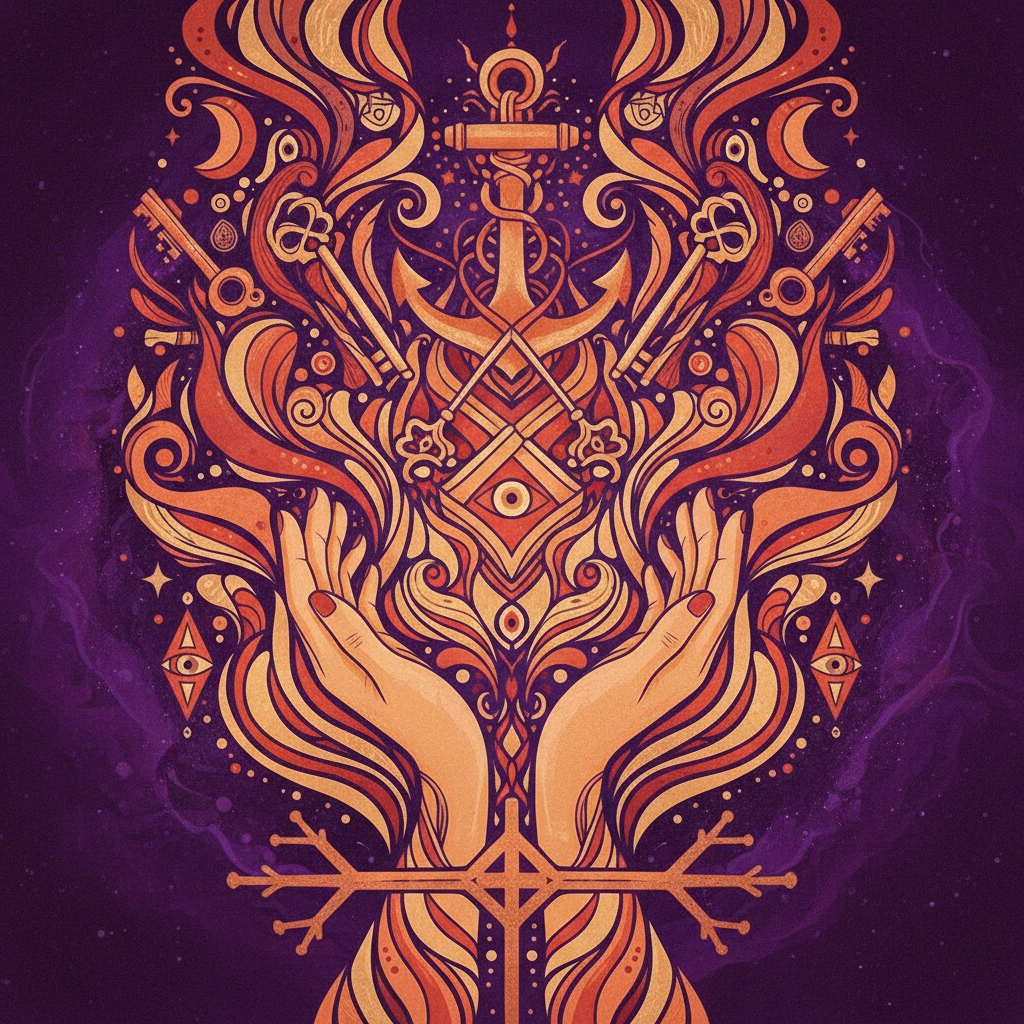
In our current era, when conversations about trauma, survival, and justice dominate our cultural landscape, Maria do Cais represents something urgently needed: a spiritual model that honors both vulnerability and strength.
She shows us that divinity doesn't require perfection or purity. It requires courage, compassion, and the willingness to transform personal pain into collective healing. Her story resonates because it's real: born from actual human experience rather than mythological abstraction.
Maria do Cais reminds us that the most powerful spiritual forces often come from the margins, from the places society prefers not to look. She elevates the experiences of survivors, sex workers, immigrants, and outcasts, showing that these aren't just stories of victimhood but narratives of profound spiritual power.
Her presence in contemporary spiritual practice offers something revolutionary: a divine feminine that doesn't ask women to be angels or martyrs, but recognizes them as complex, powerful beings capable of transformation and transcendence without losing their essential humanity.
When you approach Maria do Cais, you're not just seeking help from a spirit: you're connecting with a force that proves the most beautiful flowers can bloom in the harshest soil, and that sometimes the greatest teachers are those who learned their lessons in the school of hard knocks.
